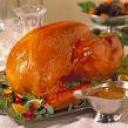“Carrier of news and knowledge, Instrument of trade
and industry, Promoter of mutual acquaintance, of
peace and good-will among men and nations.”
—Charles William Elliot
___________________________________________
A typical summer morning in my childhood. After breakfast. The day drifting lazily into what might come. We played, raggedy and carefree, barefoot and bareheaded in the grass and sunlight. Around 9:30, we scanned the road. Anticipating. Then the car popped over the little hill at Neighbor John’s, half a mile to the west. Stopped briefly, turned north toward the print shop and beyond. About ten minutes later, it came zooming back, turned left toward our house. We were the next stop. Those who had business to conduct ambled toward the road. The children clustered in, well, just because something was happening. Sometimes a small group of us gathered. The car approached and slowed, then slid to crunching halt by our large metal mailbox. The driver reached through the window, smiling, with a big rubber-banded bundle of letters and magazines.
His name was George Randall, and he was our mailman. He was an important figure in my childhood world, our only real connection to the great unknown outside. I remember him as a kindly man, slim, of medium stature, slightly balding, sitting in the middle of the front seat of his old reddish-tan Plymouth, steering with his left hand, accelerating and braking with his left foot. Making his daily rounds on the dusty country roads that were Rt. 4, Aylmer, Ontario. Zip code N5H-2R3.
George dearly loved to linger for a bit of gossip. He chuckled and clucked in a high scratchy voice and commented about many things. Current events. President Nixon’s troubles. Local news. The weather. Rising postage costs. In Canada, the postage rates seemed to increase about twice a year, by a few cents. Occasionally, there were postal strikes, and we would not see George for a few weeks or a month. After the strike, he came rollicking along his route as if nothing had happened. Which, come to think of it, hadn’t. At least not as far as delivering mail was concerned. After the long absences, he was always talkative and gossipy as ever.
He was very likely the first “English” man I ever conversed with. First as part of a group, then occasionally as a small boy alone, waiting for the mailman, clutching a packet of letters to hand to him. And proudly receiving the bundle of letters and news-papers he gave in return. As proudly delivering the precious cargo to the house.
I don’t know if he talked to all the Amish families as much as he did to us. Seems like he couldn’t have, or he would never have finished his rounds. His stop at our mailbox sometimes lasted as long a five minutes, although usually it was only a minute or two. And sometimes he slipped by and talked to no one. My brothers, Stephen and Titus, and I figured we had a special bond with him. He more often than not left us a free newspaper, “The St. Thomas Times-Journal.” He always had a few extra copies, and one always seemed to have our names on it. We seized it and ran with it, as the paper had a tendency to show up shorn of the sports section and the comics, once Dad got hold of it. So we made sure he didn’t. At least not until we were done with it.
We boys collected stamps, and sent away for them. George brought them to us in fat little brown envelopes. A hundred used stamps for ten cents. Many still stuck to remnants of the envelopes on which they were originally mailed. And packets of stamps on approval. Keep the ones you want. Send the rest back, the amount due for purchases paid with coins taped to the invoice. George cheerfully took everything we placed into the mailbox.
He brought us many magazines. Boy’s Life. It was a real magazine then, with real stories of real adventures. Outdoor Life. Field and Stream (where we discovered Patrick McManus, the great humorist). Fur, Fish, Game. The Sidney I. Robinson Out-door catalog, with pictures of hundreds of guns for sale. You could order them over the mail and have them shipped to you, not that we did. The Lunker Gazette, an eclectic little fishing magazine I subscribed to with a few carefully hoarded dollars. The Herter’s Great Outdoors catalog, from which I drooled over the fly fishing tackle. George faithfully delivered them all.
One of our very favorites was the Johnson-Smith Novelty catalog, which had a vast variety of gag gifts. We boys spent hours and hours dreamily paging through it. Imagining the unlimited possibilities. Whoopee cushions. “X-Ray” sunglasses. Fake noses and mustaches. Fake teeth. Fake vomit. Fake money toilet paper. Other fake stuff not fit to mention. A little round gadget that shocked the person you shook hands with. And much, much more. All for sale. All available through George.
I can’t remember ordering anything from the Johnson-Smith catalog ever, except once. I sent for a kazoo. Just hum into it, and out comes a tune, claimed the ad. Not musically inclined, I was excited about such potential to make real music. All I had to do was hum. I could do that. After many weeks, George finally delivered it one day. Excitedly, I ripped open the box and beheld my treasure. A cheap tinny little thing. After examining it suspiciously, I held it to my mouth and hummed. Sadly, it sounded more like a deflating whoopee cushion than anything else. But at least the tune was recognizable, or so I imagined.
One sunny June day, a group of us was assembled in the yard out by the mailbox as usual, talking to George. Dad, who sold books by mail, had just unloaded a wash basket full of packages into his car. Suddenly, from the east, there came a great clatter and shouting. Everyone looked up, alarmed. A team of horses hitched to a one-row cultivator came flying out of the field just east of the pond and turned west toward home, right at us. On the cultivator, hanging on for dear life, was my older brother, Stephen. He was probably about ten years old. He had been drafted to drive the team for my oldest brother Joseph, who had a habit of reading the “Reader’s Digest” while cultivating corn and could not be bothered with actually driving the team. At the end of a corn row, Joseph had stepped off the cultivator, and the horses just took off. Stephen could not control them.
Ears flattened, the horses gathered speed as they came galloping down the road right at us. Dad stepped out and frantically waved his empty wash basket in a futile attempt to stop them. They thundered right by with a great jangle of harness and clattering of steel wheels, just missing George’s car and almost trampling Dad, and kept heading west. A few hundred feet down the road, by the big oak tree, Stephen decided to abandon ship. Somehow he leaped from the wildly careening cultivator, landing on the rough gravel road. Amazingly, he was unhurt. He could easily have broken his neck. The team clattered on. He began walking bravely back to us.
Mom, who was in the group as well (it must have been a family event that morning), and wildly frantic that her son was hurt, kept calling out, “Oh, you poor boy. Are you hurt? You poor child.” Her excited concern was too much. Overwhelmed, he burst into tears.
Meanwhile, good old quick-thinking George had backed his car up into our drive. Dad threw aside his wash basket and crammed himself into the passenger’s side of the car, right on top of a large stack of undelivered mail. They sped off in a cloud of dust and overtook the runaways. Somehow George eased his car around the horses, and somehow Dad got them stopped. They were probably exhausted by then anyway. Dad drove them back. Joseph came loping along sheepishly after the crisis had passed. Naturally, these events caused a tremendous amount of excitement. George clucked about it for many weeks thereafter. I’m sure he told the story far and wide on his route. And Joseph took no more reading materials with him to the fields.
In all those years, I heard only one negative story about George. My oldest sister Rosemary, after she was married, ordered a package of something or other from a company in the United States. She waited for weeks and then months, and finally gave up that it would ever come. She figured it had gotten lost “at the border,” that mysterious place where things just vanished, never to reappear. Then one day George came trundling merrily into the drive with the package. Delighted, Rosemary told him she had given up that it would ever arrive.
“Oh,” said George, chuckling, “I’ve been kicking that box around at the post office for about four weeks.”
It was not a wise confession. Rosemary was highly indignant. George, bless his heart, thought nothing of it. With a work culture like that, it’s no wonder there were so many postal strikes.
George delivered the mail for many more years after we moved from Aylmer. I don’t know when he retired, but the last I heard, he was in his nineties and living with his son. His wife died in the early 1980s. I never considered until years later that he prob-ably had several hundred homes on his route. And that he was important to many others besides us. To me, his job was to bring us mail. Us, exclusively. His job began when he popped over the hill west of us at Neighbor John’s. It ended when he disappeared over the little knoll east of our house. My horizons and the borders of my little world were severely limited, naturally confined to the little two-square-mile area that comprised the community at the time. By faithfully performing his duties, George Randall played an important role in the early expansion of those horizons and my eventual emergence from that world.
_______________________________________________________________________
Thanksgiving is here for one more year. Unbelievable how fast the months have flown, considering all that has transpired this year. I plan to spend part of the day at my brother Steve’s place, at least the part of the day when the biggest meal is served. And a lot of time watching football.
I am thankful and grateful for many things. The usual list, obviously. My health, my family, my home, my job. But one thing comes to mind that I am especially thankful for, a thing that was forged from the brutal pressures of the bitter events that have unfolded this year. And that is my writing and this blog. And you, my readers. I’m humbled and grateful for every one of you. And that you keep coming back. This site has now surpassed 29,000 hits, an astounding number. And while many of those are repeats each week, it is also true that each post is printed and copied and faxed and passed from hand to hand to those who have no internet access. So it is impossible to know the actual reader count.
This has been by far the most productive year, writing wise, that I have ever had. I look back and marvel that a new post was produced every Friday now since mid-April. It’s certainly not that I always felt like it. Far from it. But something was always cobbled together, somehow, on time for the Friday evening deadlines. I have never before experienced the discipline of actually doing something like this, and the sense of accomplishment feels good.
Happy Thanksgiving to all my readers.
YOU ARE WELCOME TO POST A COMMENT ON THE LINK ON THIS PAGE ONLY.
Share





